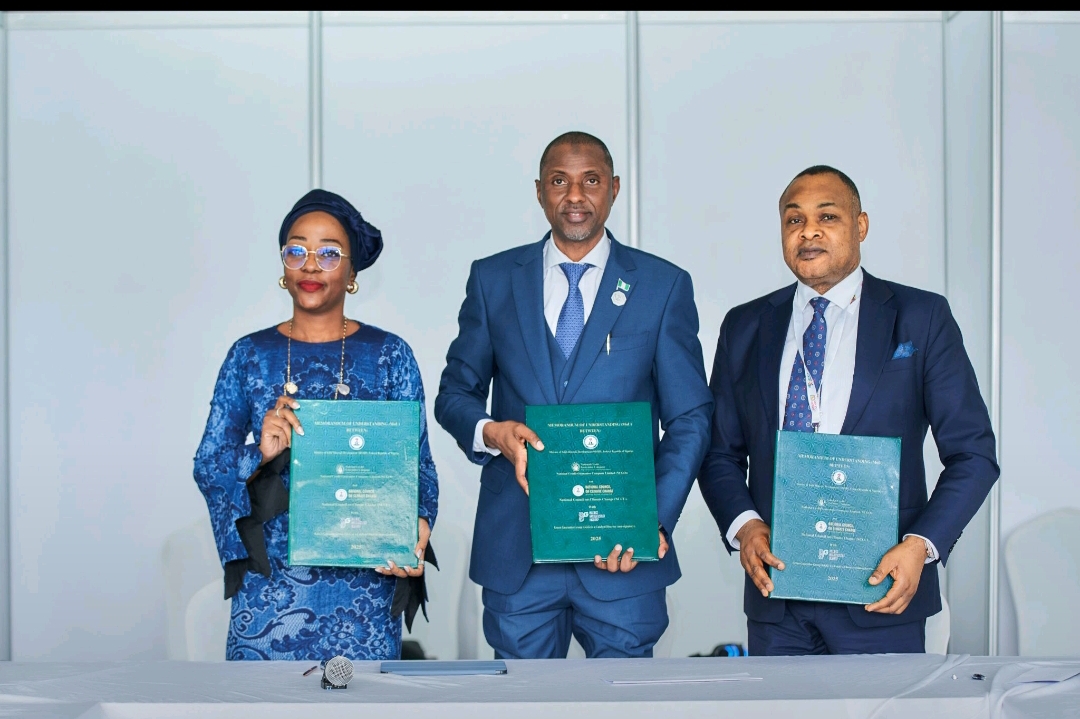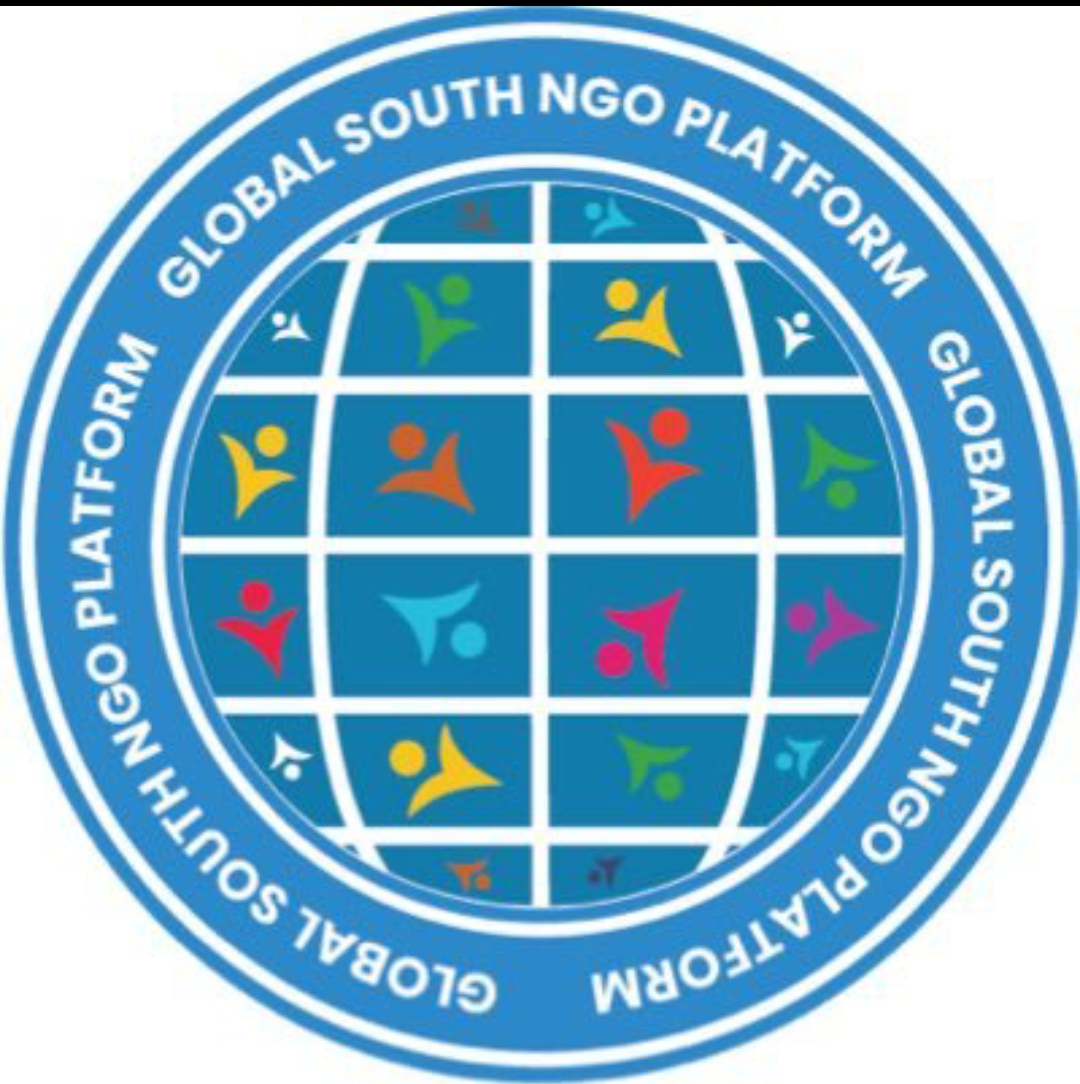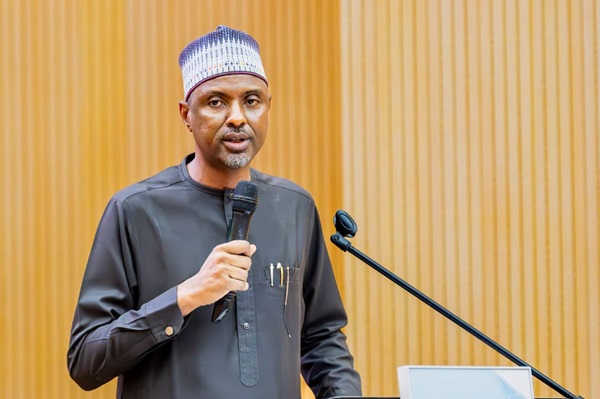Nigeria has taken centre stage in Africa’s renewed push to unlock large-scale climate finance through guarantees, positioning itself as a continental leader in driving innovative financing tools for the green transition.
This came at a high-level side event during the just-concluded African Climate Summit in Addis Ababa, themed “Scaling Climate Finance in Africa – Bridging Risk and Investment through Guarantees”. The open-door roundtable was convened by the Green Guarantee Group (GGG) and hosted by the Nigerian government.
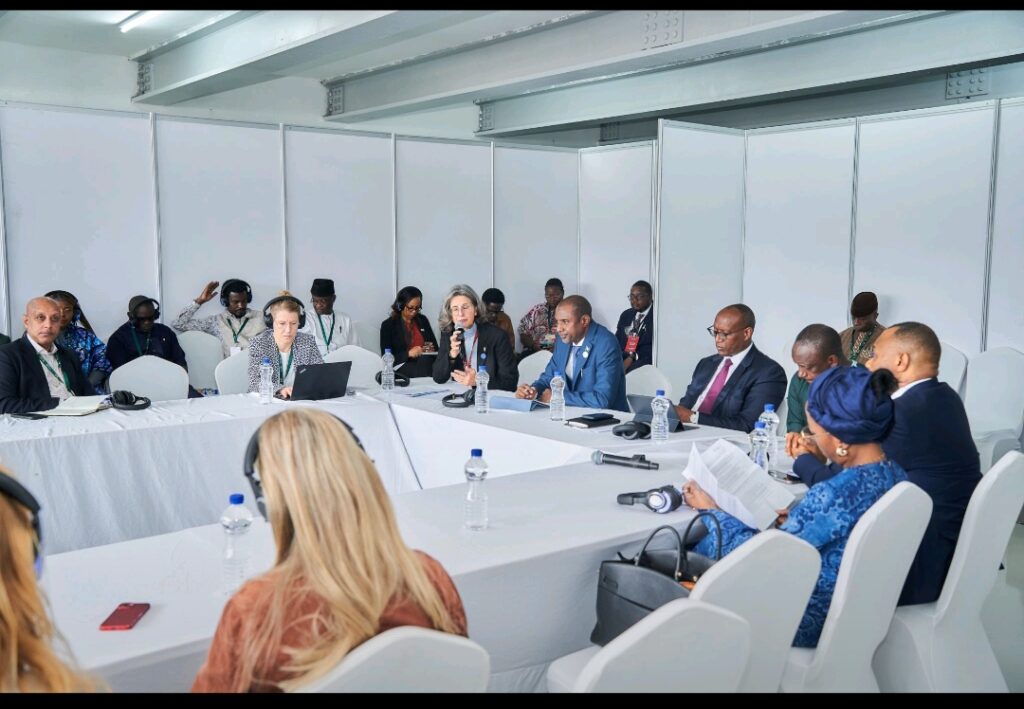
Stakeholders at the event agreed that without guarantees, Africa would continue to lag in attracting investment for renewable energy, sustainable agriculture, and climate resilience, despite contributing the least to global emissions.
Declaring the session open, Engr. Faruk Yusuf Yabo, Permanent Secretary of the Ministry of Solid Minerals Development and Co-chair of the Green Guarantee Group, stressed that African ownership and leadership were critical to unlocking climate finance at scale.
He said the initiative sought to demonstrate how Nigeria was spearheading efforts to mobilise private capital into infrastructure and climate-related projects across the continent.
“We need to create a framework where projects are filtered and their success guaranteed from inception. Collaboration is key, and the ability to speak with one voice will help the African continent approach the global negotiation table not as beggars but as solution providers,” Yabo declared.
He underscored the importance of guarantees as an underutilised instrument in Africa’s climate finance landscape, insisting that nations must “think outside the box” to design innovative solutions that de-risk green projects and attract private capital.
On his part, Dr. Kevin Kariuki, Vice President for Power, Energy, Climate and Green Growth at the African Development Bank (AfDB), announced that the bank’s board had approved the Leveraging Energy Access Finance Framework (LEAF), under which it would commit $164 million to support decentralised renewable energy projects in Ghana, Guinea, Ethiopia, Kenya, Nigeria, and Tunisia.
“Under this programme, 18 decentralised renewable energy projects are expected to be financed, providing access to six million people. This will also deliver savings of 28.8 million tonnes of CO₂ emissions over the lifetime of the systems,” Kariuki said.
German support for Africa’s de-risking efforts
Victoria Bittner, Senior Policy Officer at the German Federal Ministry of Economic Affairs and Energy, emphasised the need for stronger partnerships and capacity building.
She highlighted that while Africa faces the world’s highest investment needs, nearly 90% of global green investment flows still go to developed economies.
“Guarantees can mobilise five to six times more finance, making them a powerful tool to unlock private capital. Strong African and European partnerships are needed to deliver jointly on climate finance,” Bittner said, while commending Nigeria’s leadership role in convening the discussions.
NCGC outlines Nigeria’s strategy to bridge finance gaps
The Managing Director/CEO of the National Credit Guarantee Company (NCGC), Mr. Bonaventure Okhaimo, revealed that his organisation was set to play a frontline role in scaling climate finance in Nigeria by deploying guarantees to unlock private investment for renewable energy, resilient agriculture, and other climate-aligned projects.
“Guarantees are catalytic instruments that reduce risks for lenders and attract private investments. At NCGC, our mandate is to de-risk lending, expand credit access, and ensure viable green projects become bankable,” Okhaimo explained.
He cited OECD data showing that between 2016 and 2021, guarantees mobilised nearly half of all private capital for climate finance, despite constituting only five percent of multilateral commitments.
“Africa’s climate finance gap is vast but not insurmountable. By scaling guarantees, strengthening project pipelines, and building local capacity, we can crowd in private capital to drive green growth and resilience,” Okhaimo added.
Africa’s unmet climate finance needs
According to the GGG’s 2025 report, global climate finance flows hit $1.46 trillion in 2022.
However, Emerging Markets and Developing Economies (EMDEs), excluding China, require up to $2.4 trillion annually to meet climate and development goals.
The UNFCCC’s New Collective Goal on climate finance targets $1.33 trillion annually by 2035, yet Africa continues to attract only a fraction of global flows, leaving the continent with an enormous funding gap for its green transformation agenda.
The highlight of the event was the signing of a tripartite Memorandum of Understanding (MoU) between Nigeria’s Ministry of Solid Minerals Development, the National Credit Guarantee Company, and the National Council on Climate Change.
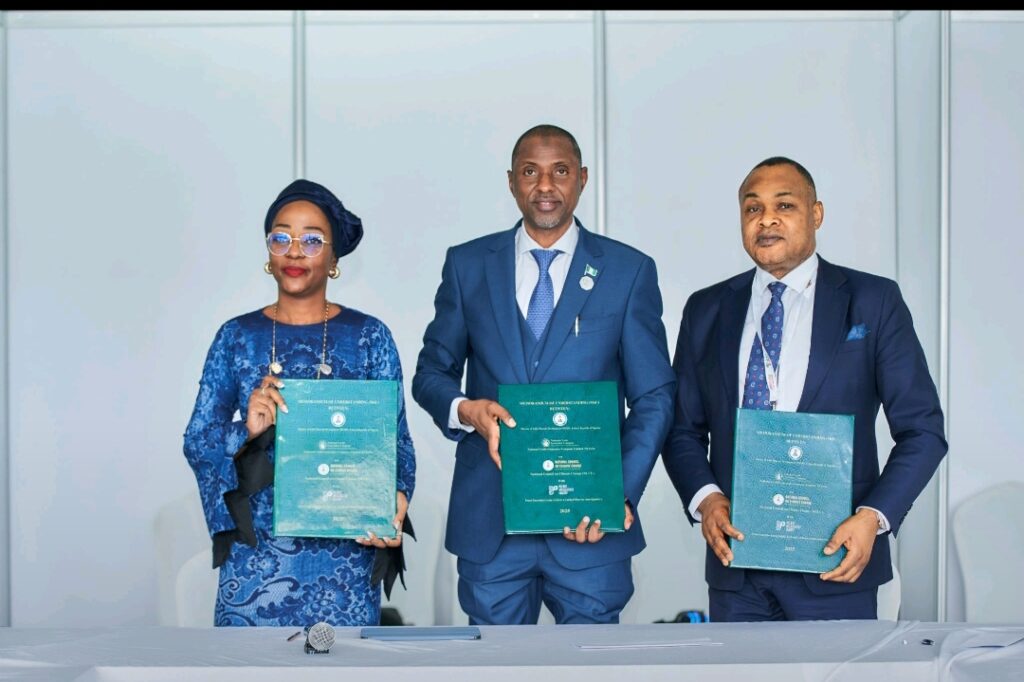
The MoU aims to consolidate Nigeria’s leadership in mainstreaming guarantees as a key instrument for unlocking private sector funding, not only domestically but across the African continent.
By Dare Akogun, Addis Ababa


